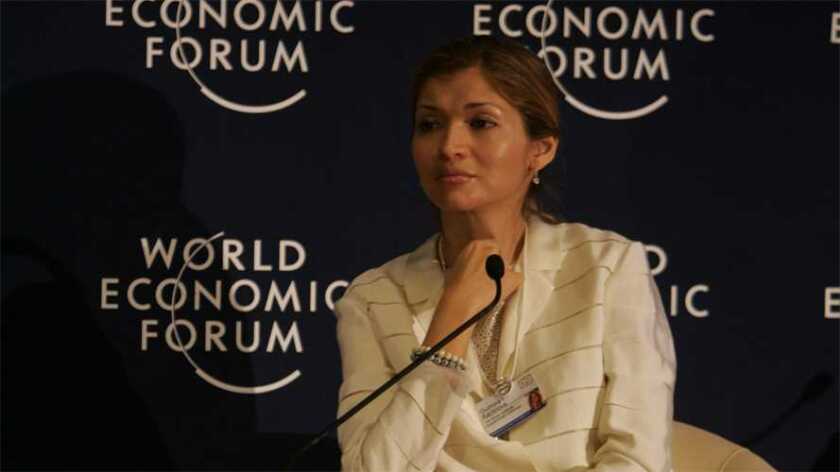MTS, whose shares are listed on the New York Stock Exchange, settled a deal with the US Department of Justice (DoJ) and the financial regulator, the Securities and Exchange Commission.
The settlement means three companies have paid a total in fines to US, Swedish and Netherlands authorities of $2.66 billion.
Alexey Kornya, MTS’s president and CEO, said: “Obtaining a resolution of the Uzbek investigations was in the company’s best interests. The resolution and settlement allow MTS to focus fully on the implementation of MTS’s business strategy to be a first-in-class digital telecom company.”
And US federal prosecutors have charged Gulnara Karimova (pictured), the daughter of the late president of Uzbekistan, over allegedly taking $865 million in bribes from the telecoms industry.
According to her lawyer, Karimova was arrested last week at her apartment in Tashkent and removed to an unknown destination.
Kornya said that MTS has mended its ways: “MTS has systematically and proactively developed its current anti-corruption compliance framework in line with international best practices within a dedicated compliance division since 2012,” he said.
“Our compliance function continues to undergo testing and we are committed to developing and implementing high professional standards of corporate policies, processes and procedures at MTS. I am confident that MTS’s commitment to adhering to the highest standards of business ethics will strengthen and protect the company’s position as a leader in all our markets of operation.”
The other three companies that have been badly bruised by their experience in Uzbekistan are Telenor, Telia and Veon – formerly named VimpelCom.
In September 2017 Telia paid $965 million to US, Swedish and Netherlands authorities. This was better than CEO Johan Dennelind had feared in September 2016, when he warned shareholders that the fine could be as much as $1.4 billion.
In 2016 VimpelCom, as it then was, agreed to pay $835 million in settlement fees to US and Dutch authorities after admitting it paid huge bribes to enter the Uzbekistan telecoms market. Telenor was a major investor in VimpelCom but it sold its stake after the bribery scandal was revealed. Telia, in the wake of its role in Uzbek corruption, also sold all its central Asian operations.
The total of the three agreed fines is $2.66 billion, but this does not take into account losses from selling or closing down businesses in the region, or reputational loss.
In addition, C-level executives of both Telenor and Telia lost their roles. Last month a Swedish court acquitted Lars Nyberg, the former CEO of Telia, and two other former senior executives of corruption changes.
In 2016, Telenor announced that two executives were resigning after a probe uncovered “internal weaknesses” and “insufficient” handling of corruption allegations at VimpelCom. No charges were ever brought.
Karimova’s role seems to have been to acquire telecoms licences from her father, Islam Karimov, who died in 2016, and then sell them off. She disappeared from public view two years before his death, and was later found to be under house arrest – until last week when her Swiss lawyer, Grégoire Mangeat, tweeted pictures of her being bundled out of her apartment and presumably to jail.
He wrote: “She was taken to an unknown place. The Uzbek authorities continue to exert psychological and physical pressure on her to force her to withdraw her appeals and abandon all her rights and property in Switzerland.”






